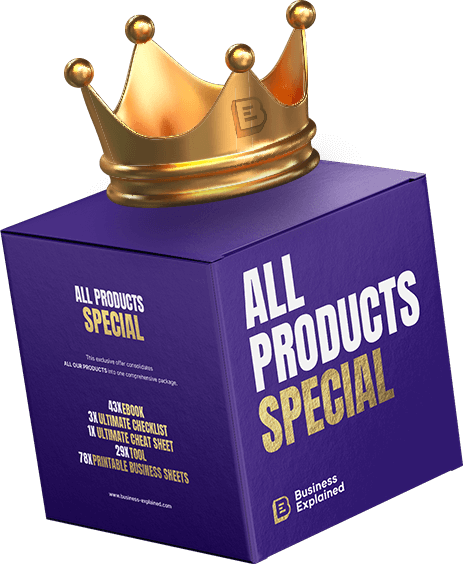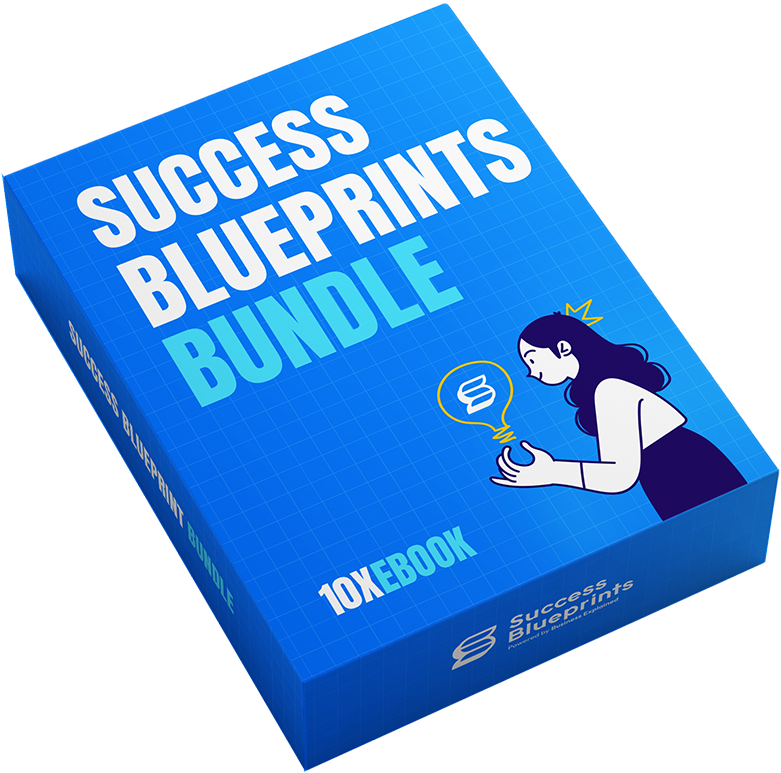Table of Contents
- What is Podcast Content Marketing?
- Podcast Content Marketing Example – TOP 5 Podcasts
- Why Should You Include Podcasting in Your Content Marketing Strategy?
- How to Incorporate Podcasting into Your Content Marketing Strategy
- How to Start a Podcast for Your Business – Step by Step
- How to Measure the Success of Your Podcast Marketing?
- Podcast Content Marketing Challenges and How to Overcome Them
Podcast content marketing has surged in popularity as an effective strategy for engaging audiences and building brand awareness. As businesses continue to seek innovative ways to connect with their target market, podcasts have emerged as a powerful tool for content marketing. In this article, we will explore what podcast content marketing is, provide examples of the top podcasts, discuss why you should include podcasting in your content strategy, and guide you through how to start a podcast for your business. We will also cover how to measure its success and the challenges you may face.
What is Podcast Content Marketing?
Podcast content marketing refers to the use of podcasts as a medium for promoting your business, building relationships with your audience, and providing valuable content to listeners. Podcasts, which are audio-based shows that can be streamed or downloaded, are ideal for brands looking to reach their target audience in a more personal, engaging, and long-form way.
Through podcasts, companies can share insights, showcase their expertise, feature interviews with thought leaders, and provide educational content. These shows can be used to engage listeners while subtly promoting products, services, or brand values. It’s not about overt advertising but offering value through informative, entertaining, and thought-provoking content.
Unlike written blog posts, podcasts allow businesses to tap into a different type of engagement, where tone, voice, and personality shine through. This form of content marketing builds trust and fosters relationships with the audience, helping you stand out in a crowded marketplace.
For more in-depth strategies and frameworks on integrating podcasts into your marketing approach, check out our Marketing Frameworks Explained eBook.
Podcast Content Marketing Example – TOP 5 Podcasts
To better understand how podcast content marketing works, let’s explore five of the most popular podcasts and how they’ve successfully incorporated podcasting into their marketing strategies.
#1: The Tim Ferriss Show
The Tim Ferriss Show is one of the most well-known podcasts in the business and self-development category. Tim Ferriss, the author of The 4-Hour Workweek, interviews high achievers from various industries, offering listeners a glimpse into their habits, routines, and strategies for success.
Ferriss’ podcast works as excellent content marketing because it provides immense value to listeners in the form of actionable insights and personal stories from successful individuals. While the podcast itself doesn’t directly promote products or services, it elevates Tim Ferriss’ brand as an expert in productivity and self-improvement. His association with best-selling books and courses further amplifies the value of the podcast as a marketing tool.
#2: Call Her Daddy
Call Her Daddy, hosted by Alex Cooper, is a podcast that blends entertainment, humor, and serious conversations about relationships, mental health, and social issues. This podcast became a massive hit in part because of its engaging personality and relatability. Cooper’s authenticity and boldness have turned this podcast into a valuable content marketing vehicle for brands looking to target younger demographics, particularly women.
Through Call Her Daddy, Alex Cooper has built a substantial personal brand, attracting millions of listeners and numerous sponsorships. Brands interested in connecting with her audience can use the podcast as a platform to promote their products in an organic way, often through advertisements or by associating themselves with Cooper’s personal brand.
#3: The Smart Passive Income Podcast
Pat Flynn’s Smart Passive Income Podcast is a go-to resource for entrepreneurs looking to create passive income streams. Through interviews with successful entrepreneurs, business case studies, and solo episodes, Pat provides valuable advice on topics like online business, marketing strategies, and digital entrepreneurship.
This podcast is an excellent example of how businesses can use podcasting to establish credibility and trust within a specific niche. Pat’s transparent approach and actionable advice make his podcast a go-to resource for anyone looking to start an online business. It’s not just about the content; the podcast also drives traffic to his blog and other services, turning listeners into loyal customers.
#4: How I Built This
How I Built This, hosted by Guy Raz, tells the stories of entrepreneurs who built some of the world’s most successful companies. The podcast features in-depth interviews with founders and innovators from brands like Starbucks, Spanx, and Airbnb. Each episode shares the journey of these entrepreneurs, offering inspiration and insights on how they overcame challenges and achieved success.
For businesses looking to build brand authority, How I Built This is a powerful podcast model to follow. Not only does it highlight stories of resilience and determination, but it also teaches valuable lessons that entrepreneurs and business owners can apply to their own ventures. The podcast indirectly promotes the brands of the entrepreneurs featured, positioning them as thought leaders and experts in their respective industries.
#5: Online Marketing Made Easy
Hosted by Amy Porterfield, Online Marketing Made Easy is a podcast that helps online business owners master digital marketing. With episodes covering topics like email marketing, social media strategies, and course creation, this podcast is an educational resource for businesses looking to grow and scale their operations.
Amy Porterfield has built a massive following by offering actionable marketing advice. Through her podcast, she not only provides valuable content but also promotes her online courses and webinars. Her podcast content marketing strategy is highly effective because it seamlessly integrates educational value with business promotion.
To learn more about creating engaging content and effectively growing your audience, explore our Content Creation – Wow Your Audience eBook.

Why Should You Include Podcasting in Your Content Marketing Strategy?
Podcasting can be an invaluable addition to your content marketing strategy, offering numerous benefits for your business. Here are some of the reasons why incorporating podcasting into your strategy can be a game-changer:
1. Build Trust and Authority
Podcasting allows you to showcase your expertise, build your authority, and establish trust with your audience. When you consistently provide valuable insights and helpful information, listeners begin to view you as a credible and reliable source in your industry.
2. Reach a Highly Engaged Audience
Podcasts have a highly engaged audience. Studies show that podcast listeners are more likely to follow through on a brand’s call to action, such as making a purchase or signing up for a service. Because podcasts are usually consumed on a regular basis, you can build a loyal following who tune in for every episode.
3. Boost Brand Awareness
Podcasting can help your business reach a wider audience and boost brand awareness. When you appear on popular podcasts or create your own, you expose your brand to listeners who may not have heard of you before. This form of marketing is more organic and less intrusive than traditional advertising, allowing listeners to connect with your brand on a deeper level.
4. Repurpose Content
One of the great advantages of podcasting is the ability to repurpose content. You can take key takeaways from your podcasts and transform them into blog posts, social media posts, infographics, or videos, allowing you to maximize the value of each episode. This multi-channel approach helps you get more mileage from your content.
5. Create a Personal Connection with Your Audience
Podcasting allows you to connect with your audience on a personal level. The intimate nature of audio content makes it easy for listeners to form a relationship with the host. When done right, podcasts can feel like a conversation, making your audience more likely to trust and engage with your brand.
As Castos wrote, consistently releasing podcast episodes is key to attracting listeners, building routines, and growing your audience. It builds listener trust, encourages regular listening, and creates a library that can grow, while also preventing “podfading” by keeping your podcast on a reliable schedule.
Podcasts help build trust and deepen customer engagement, which is a key factor in strengthening business relationships. Learn more in our Customer Relationship Explained e-book.
How to Incorporate Podcasting into Your Content Marketing Strategy
To integrate podcasting into your content marketing strategy, follow these steps:
- Define Your Goals: Start by identifying what you want to achieve with your podcast. Is it to build brand awareness, educate your audience, or drive sales? Your goals will shape the content and format of your podcast.
- Know Your Audience: Understanding your target audience is key to creating content that resonates. Conduct research to find out what topics interest your listeners and tailor your content accordingly.
- Choose a Format: Decide on the format of your podcast, whether it’s a solo show, interviews, panel discussions, or storytelling. The format should align with your audience’s preferences and your brand voice.
- Plan Consistent Episodes: Consistency is key in podcasting. Create a content calendar and publish episodes regularly, whether it’s weekly, bi-weekly, or monthly. Consistent posting helps you retain listeners and grow your audience.
- Promote Your Podcast: Use your website, social media platforms, email newsletters, and partnerships to promote your podcast and encourage listeners to subscribe.
To master different marketing approaches and discover how podcasting fits into a broader strategy, visit our Ebook Marketing category, where you’ll find valuable resources and actionable insights that can help you integrate podcasting seamlessly into your overall content marketing plan.

How to Start a Podcast for Your Business – Step by Step
Starting a podcast for your business is easier than you might think. Here’s a step-by-step guide:
- Choose Your Topic and Niche: Choose topics that are relevant to your business and niche, and that resonate with your target audience. According to Castos, and his list of the biggest podcast mistakes, it’s essential to research what your audience really wants, by researching questions on platforms like Quora or Facebook groups, and creating content that addresses their needs.
- Select Equipment and Software: Invest in a quality microphone, headphones, and audio editing software. Popular podcasting tools include Audacity (free) and Adobe Audition (paid). You’ll also need a hosting platform for your podcast episodes.Consider investing in soundproofing materials to enhance audio quality and reduce background noise for a more professional sound.
- Create a Content Plan: Outline the types of episodes you’ll produce, the format, and the frequency of publishing. Plan out at least 10 episodes in advance to ensure consistency. This will help you stay organized and maintain a steady flow of content, even during busy periods.
- Record and Edit Episodes: Record your episodes in a quiet environment to ensure the best sound quality. Afterward, edit your audio to remove any mistakes and ensure a professional finish. Take the time to enhance the overall listening experience by adding sound effects or intro music, making the content more engaging.
- Create original intro music: According to Buzzsprout list of the most effective podcast introductions, a well-chosen podcast intro music is a simple yet effective way to convey your brand’s personality, set the tone for the show, and both engage new listeners and encourage existing ones to stay.
- Upload and Promote Your Podcast: Upload your episodes to podcast directories such as Apple Podcasts, Spotify, and Google Podcasts. Then, promote your podcast across your social media channels, email list, and website to attract listeners. Additionally, collaborate with influencers or other podcasters in your niche to expand your reach and gain more exposure.
- Consider Podcast Seasons: If you want to keep your podcast organized and engage listeners over time, consider structuring your show into seasons. Castos suggests that it would be great to plan a podcast season to focus on a specific theme, allowing you to take breaks between seasons while maintaining consistency and audience interest.
How to Measure the Success of Your Podcast Marketing?
Measuring the success of your podcast involves tracking key performance indicators (KPIs) that reflect audience engagement and business impact. These may include:
- Download Numbers: Monitor the number of downloads per episode to understand your audience reach.
- Listener Retention Rates: Track how long listeners are staying engaged with your episodes to gauge content quality.
- Audience Growth: Evaluate the growth of your podcast audience over time.
- Conversion Rates: If you have specific calls to action, such as signing up for a service or purchasing a product, measure the conversion rates to assess how well your podcast is driving business outcomes.
Podcast Content Marketing Challenges and How to Overcome Them
While podcasting offers tremendous potential, it also presents some challenges:
- Time and Effort: Creating and maintaining a podcast requires a significant time investment. Overcome this by planning your content in advance and possibly outsourcing editing or guest booking.
- Audience Building: It can take time to build a dedicated audience. Be consistent and promote your podcast through multiple channels to attract listeners.
- Technical Issues: Poor audio quality can drive listeners away. Invest in quality equipment and take time to learn the basics of sound editing to ensure your podcast sounds professional.
- Staying Engaging: To keep your audience coming back, you must consistently deliver value. Always focus on your audience’s needs and provide them with actionable insights or entertainment that keeps them engaged.
Podcast content marketing is an excellent way to connect with your audience, build brand authority, and provide valuable content. By understanding what makes a successful podcast and how to incorporate it into your content strategy, your business can leverage this powerful tool to create lasting relationships with customers. To better navigate these challenges and ensure the long-term success of your podcasting efforts, explore our Risk Management Explained eBook, where we provide in-depth strategies for effectively managing risks in your content marketing.



 Risk-free Purchase: Full refund within 14 days
Risk-free Purchase: Full refund within 14 days



